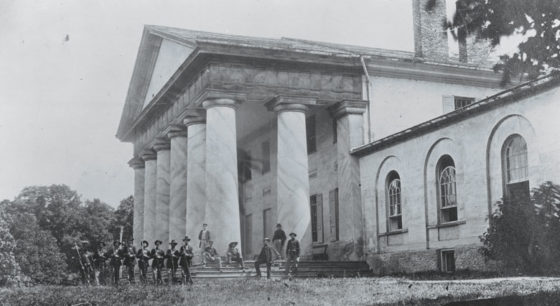
“His admirers applaud his military genius and the administrative acumen he used to advance the modernization of France and Europe. Critics deplore him for his megalomania and the decisions he made that led to devastation and death for hundreds of thousands. Both are right.”
By William Nester
A BIRTHDAY is a fitting occasion to assess an individual’s life. This is especially true for a supremely noteworthy historical figure like Napoleon Bonaparte.
Born 254 years ago today — August 15, 1769 — few people in history have provoked more adulation and hatred. This along with the renewed public interest in Bonaparte surrounding the soon-to-be-released Ridley Scott biopic call for reappraising of his legacy.
No one exceeded Napoleon’s understanding and mastery of a virtuous cycle of power composed of interdependent military, administrative, diplomatic, cultural, and, thus, political dimensions. His success in one realm was enhanced by success in others; failure in one by failure in others.
“The art consists in making one’s success in war pay for itself,” Bonaparte famously said. “To conquer is nothing; one must profit from the success.”
He also understood the distinctions and relationships among hard, soft, and smart power. Hard power is physical like armies, navies, factories, and farms. Soft power is psychological like leadership, strategy, tactics, values, and beliefs. Smart power is choosing to assert or develop the appropriate balance of the two. Bonaparte understood that all power is relative and limited in varying ways and degrees.
Yet, ultimately, Napoleon failed spectacularly. The near absolute control he amassed as emperor and through his dazzling military victories warped him. Convinced of his invincibility, he believed he could do no wrong. Those under him who suggested otherwise were silenced. And for that he is among history’s most controversial figures. His admirers applaud his military genius and the administrative acumen he used to advance the modernization of France and Europe. Critics deplore him for his megalomania and the decisions he made that led to devastation and death for hundreds of thousands. Both are right.
Napoleon was at once a man of his time and one who eventually transcended it. He grew up in France’s Ancien Regime and came of age during the Revolution. He was a man of both thought and action, a progressive and a despot, a builder and a destroyer. He was both cruel and caring, decisive and fatalistic, ruthless and forgiving, rational and sentimental, generous and austere, a cynic and a romantic, and a humanist and a brute. Even his worst critics acknowledge his laudable traits. He was among history’s most curious men. Indeed, his desire and capacity to absorb knowledge was insatiable. He obsessed over topics that interested him, which was pretty much everything — from the sciences to the humanities.
Few people could match his astonishing ability both to devise grand strategies and micromanage, to connect dots and think outside boxes. He had an equally impressive ability to compartmentalize.
“When I wanted to set aside an issue, I closed that drawer and I opened another,” he once remarked. “They did not at all mix, and it did not at all fatigue me to go from one to another.”
He relaxed by filling his brain with details and statistics then applying them to solve problems. On campaign, he escaped briefly from the stress of war by spotlighting a faraway time and place to ameliorate. Indeed, he generated many of his ideas for promoting the arts and sciences during his military campaigns.
He was a workaholic; his every waking hour was productive.
“Work is my element,” he said. “I was born and constituted for work.”
Yet, although he drove his subordinates as relentlessly as he drove himself, he understood that others had limits. He then encouraged those beneath him to relax and enjoy themselves after they had fulfilled each day’s duties.
Napoleon also profoundly understood psychology. He believed that a person’s success lay in both their unique character and their personal circumstances while being driven by the choices they made.
“Without doubt, each man…must develop his character through education, but this must be grounded on what nature has given him,” he wrote. “Otherwise he runs the risk of losing those advantages, without obtaining the character that he sought…The course of life for each must be, after all, the evident result…of his character.”
Yet character was not destiny. At times good men make bad decisions and bad men make good decisions. Similarly, self-interest helps others and altruism hurts others. Each choice depends on how one perceives and reacts to complex, changing situations.
Tragically, as Napoleon’s power rose, his mind closed. At some point after he became emperor, his ministers no longer advised him but merely implemented his decrees. Hubris was Napoleon’s Achilles heel. Victories bloated and twisted his ego until his ambitions exceeded even his astonishing abilities. Then the devastating defeats began and eventually destroyed all that he had created.
 William Nester is the author of Napoleon and the Art of Leadership; How A Flawed Genius Changed the History of Europe and the World. A Professor at the Department of Government and Politics, St. John’s University, New York, he is the author of more than 40 books on history and politics.
William Nester is the author of Napoleon and the Art of Leadership; How A Flawed Genius Changed the History of Europe and the World. A Professor at the Department of Government and Politics, St. John’s University, New York, he is the author of more than 40 books on history and politics.









